
The
Scientist:
Dr. Fumiko
Hoeft
Through its Allied Health and other programs, UConn Waterbury is creating a pipeline to address the need for more local healthcare professionals. Meet DR. FUMIKO HOEFT – the campus director who’s utilizing her myriad experiences as an acclaimed academic and internationally-known scientist to impact careers and inspire collaborations.
Like many professionals, Fumiko Hoeft has a curriculum vitae, or CV – in essence, a resume which offers a summation of a person's education and career to date. Prior to our discussion, she has emailed her CV to us as a Microsoft Word attachment. This is standard fare, until one opens the file and finds tabbed sections like Edited Books, Peer-Reviewed Publications, Selected Abstracts, and Invited Symposia – as well as seventy pages of accolades and accomplishments.
Yes, seventy.
Hoeft has delivered countless presentations, published hundreds of articles, served on dozens of boards and committees, given two TEDx Talks, even spoken at the White House. She leads UConn Waterbury; directs the Brain Imaging Research Center at UConn; is a UConn professor of educational psychology; has additional appointments in mathematics, computer science, engineering, pediatrics, neuroscience, and psychiatry; and continues an adjunct faculty role at both Keio University in Japan and the University of California-San Francisco, running a research laboratory at the latter.
When asked whether she sleeps, Fumiko – with the charisma and positivity she exudes throughout our conversation – smirks, “Yes, I do sleep,” and in the understatement of the century, adds, “I like to keep busy, and I like doing different things.”
 WORX
WORX 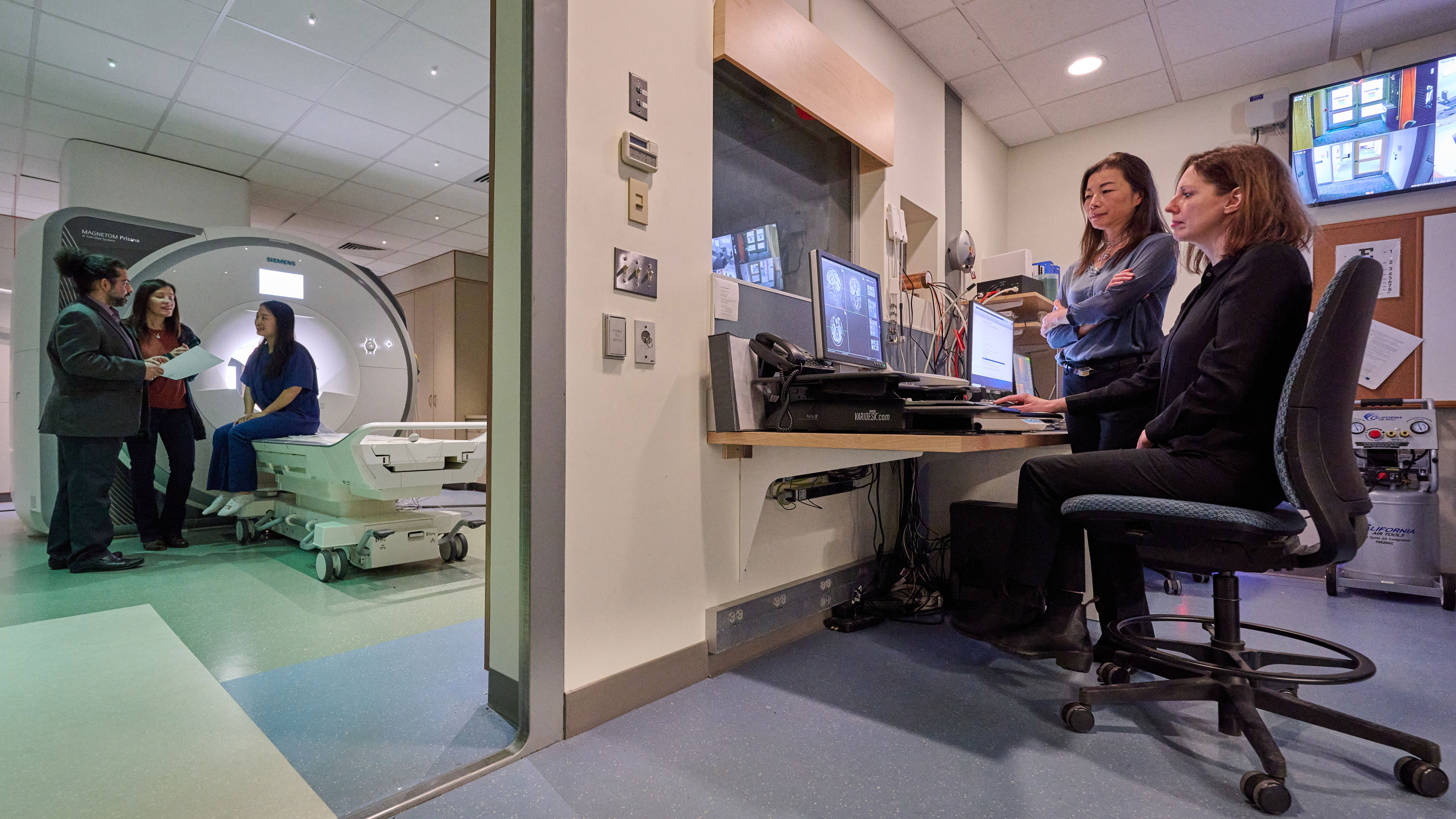 University of Connecticut
University of Connecticut The campus director position alone is keeping Hoeft quite busy, and she loves it. Hoeft gets to steward strategic decisions for UConn Waterbury that help the student body grow in concert with the flagship university system that Waterbury is a part of. UConn Waterbury students can start off in many of the 115 plus majors offered by the University of Connecticut, take coursework in Waterbury for the first year or first two years, and complete their studies in Storrs.
Hoeft believes the moment is now to create more substantial career pathways in business, sciences, education, social services, and healthcare. When asked to give a perspective on the state of healthcare, Hoeft offers a powerful glimpse into how she is informing change across UConn Waterbury. “In terms of medical professionals, there’s a major shortage – but I think with these shortages, it brings opportunities in terms of thinking about how we can best provide care to our community. Is there any way we can maintain high quality education but shorten the time to graduation? Should we be more specialized? It gives us a moment to pause and think about where we really need to beef up the next generation of healthcare.”
In 2020, allied health sciences – one of the nation’s fastest-growing career pathways – became available at UConn Waterbury as a bachelor’s degree program that can be completed from start to finish at the campus. Through the University, students are prepared to continue on to medical school, dental school, health administration, healthcare professional, and public health careers.
Per Hoeft, UConn Waterbury's allied health sciences program is a game-changer for both students and the Waterbury region.
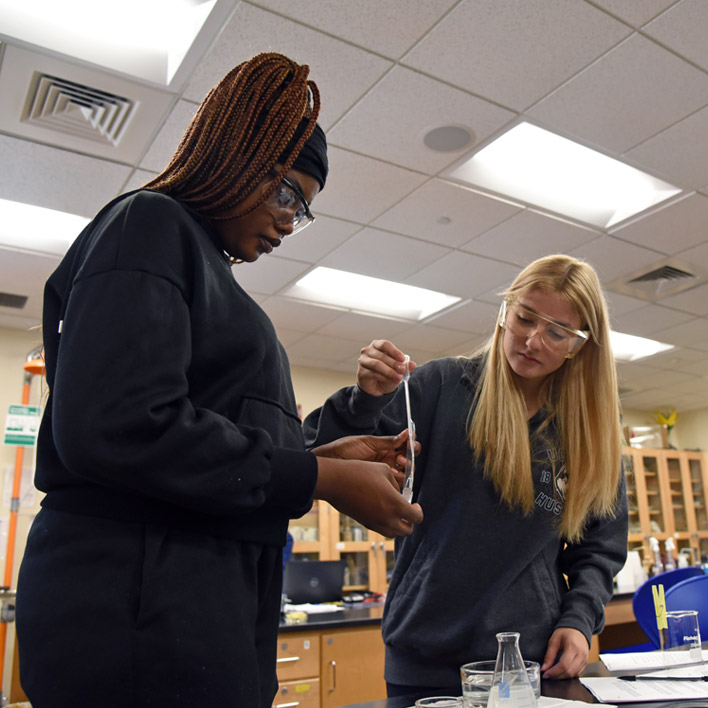
Since the allied health program arrived, we have been developing internship programs with the Department of Public Health, various hospitals, clinics – and we are in the process of building more. They want our students to graduate and find work in the local area. I like win-win, and I feel like we have that kind of great relationship with [organizations in] the city.
 WORX
WORX 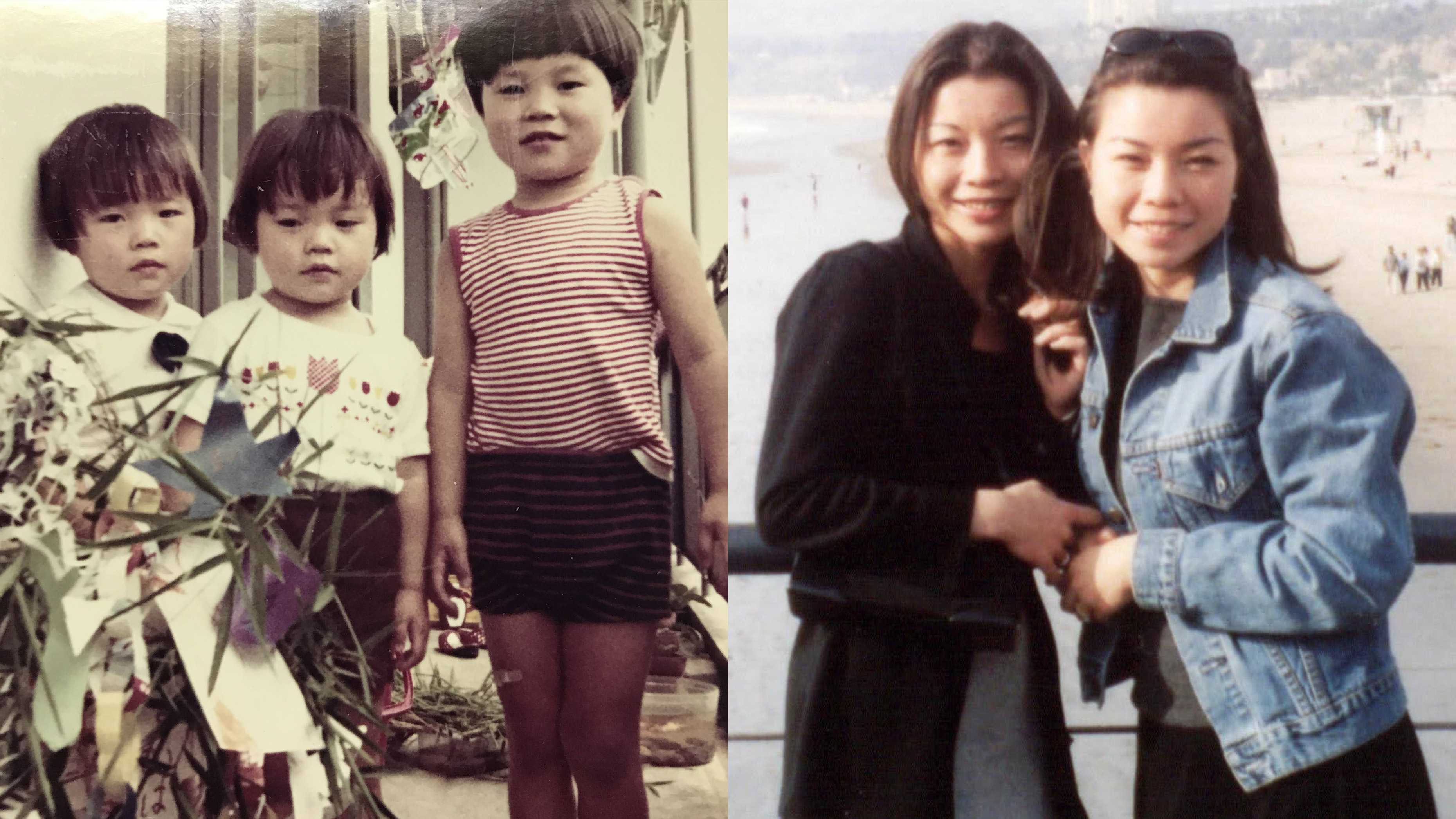 The Hoeft Family
The Hoeft Family Fumiko Hoeft (far left) with siblings, Keiko and Yuji, as children; Fumiko (left) and Keiko during their teen years.
Fumiko grew up with a brother and twin sister in Tokyo, Japan – more than 6,700 miles away from Waterbury. Hoeft was so shy as a child that she carried the nickname "Sekimen-sho-no Fumi-chan," a Japanese phrase which translates to "Fumiko who blushes." She was rather obsessive about things – be they knitting, cleaning, cooking, or studying – and would often stay up all night until the task was done to her liking. Young Fumiko was fascinated by the words of Mother Teresa and Mahatma Gandhi, and through their inspiration, developed a clear vision: to become a Medical Doctor.
Hoeft attended the International School of London in her high school years, and was accepted into the Keio University School of Medicine in Tokyo, where she earned a MD, and then a PhD in Neuroscience. She did her pre-doctorate at Harvard, fellowships at Caltech and UCLA, and post-doctorate at Stanford. (If you’re wondering, the answer is yes: Each of those institutions is among the most prestigious in the entire world.)
While Hoeft was thinking about the public health path and doing rotations at the Mayo Clinic, she became fascinated by how the brain works – particularly, how schizophrenia and depression can vary so much from one person to another. She dove into neuroscience research, becoming a faculty member at Stanford and then the University of California-San Francisco.
In the process, there was an opportunity to collaborate with the University of Connecticut – “a fantastic experience,” recalls Hoeft, “with extremely smart people, very humble people, who cared really deeply about their students.”
The collaborative spirit of that project stuck with her so much that Hoeft joined the UConn faculty. And here we are.
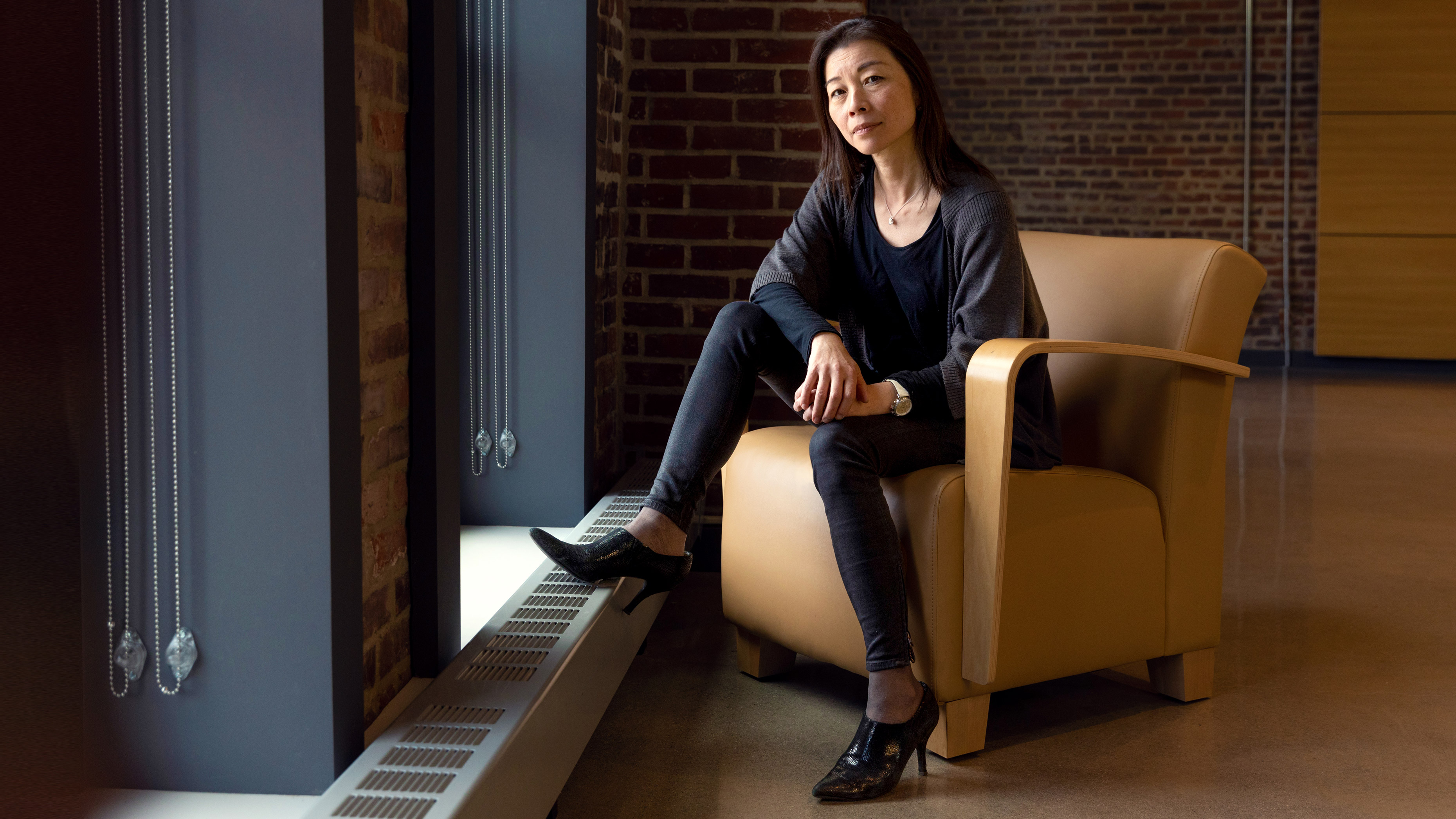 WORX
WORX Hoeft is gracious to note that UConn Waterbury isn’t the only higher ed institution in the region – in fact, she applauds the offerings of Post University, Naugatuck Valley Community College, and several schools nearby – mentioning that it’s wonderful to have an area saturated with viable educational options.
Fumiko also effuses praise on “the beating heart” of the city’s educational frame – the Waterbury Public Schools.
“Waterbury Public Schools is an amazing system, and I knew it before I knew the city of Waterbury,” she says. When Hoeft first arrived at UConn, she was developing a research grant proposal to create a new PhD program. Faculty members at UConn's Neag School of Education suggested she seek out the thoughts of Waterbury Public Schools leaders. “They’re known as an evidence-based, progressive public school system… very collaborative in trying to bring in higher ed.” Hoeft and the Waterbury Public Schools did indeed collaborate – both on the immediate research grant aspects, and on a longer-term plan to create a larger pipeline for Waterbury students to leverage healthcare education in college and beyond.
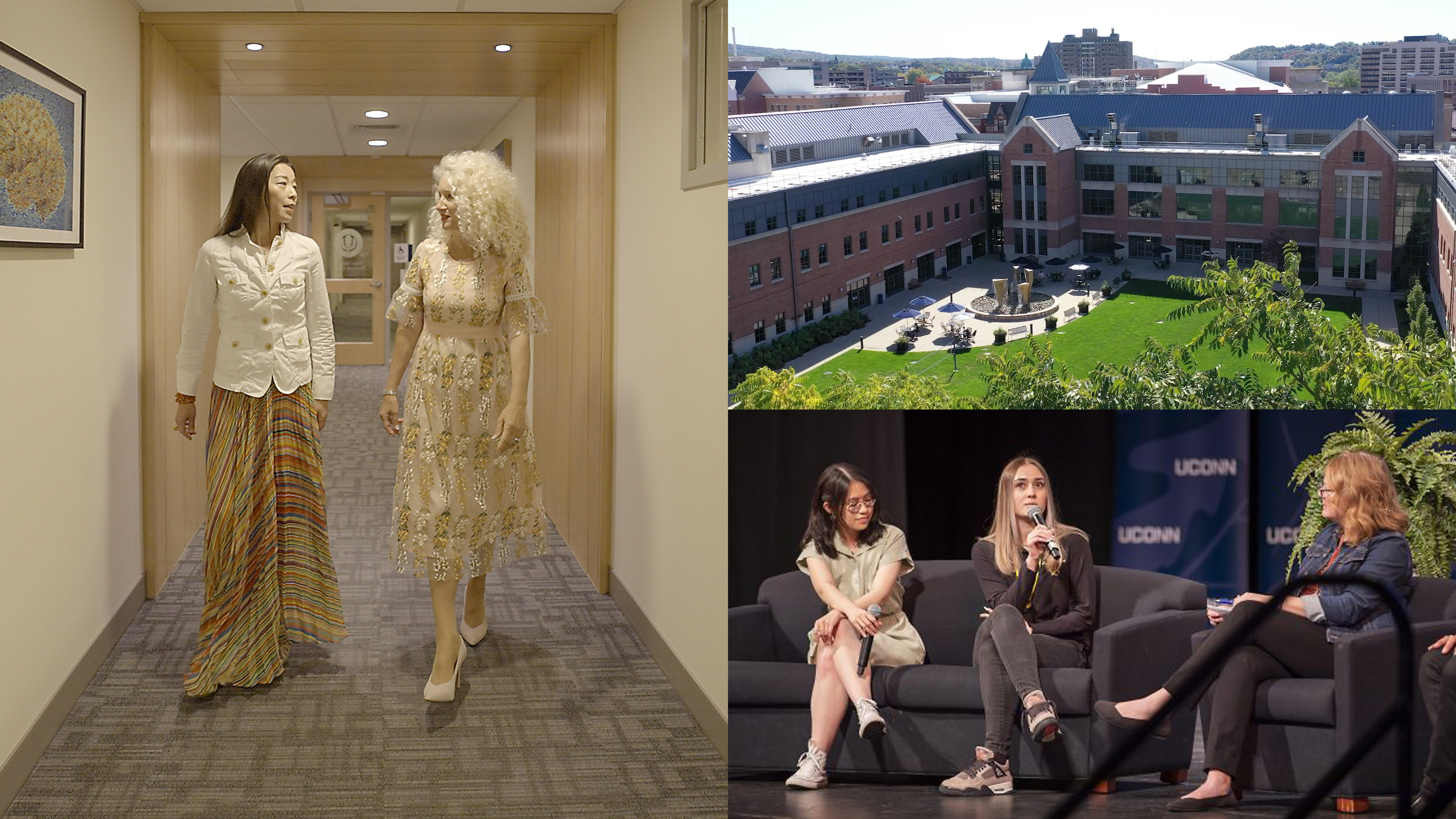 University of Connecticut
University of Connecticut (Clockwise from left) Fumiko Hoeft with UConn President Radenka Maric; An aerial view of the UConn Waterbury campus; UConn Waterbury students providing perspectives at the W.I.S.H. Fest.
Of the UConn Waterbury student experience, Hoeft says, “It’s the best of both worlds in that we have collaborations with UConn in Storrs, and we have this small, tight knit community here in Waterbury.” Tight knit, by the way, does not mean under-resourced.
Quite the opposite, in fact.
The Waterbury campus offers robust programs in fields ranging from business administration to urban and community studies. It regularly hosts club events, conversations with thought leaders, and career expos. It offers an Osher Lifelong Learning Institute (OLLI) program with a variety of non-credit learning experiences for adults 50 or older. Recently, the City of Waterbury and UConn Waterbury presented W.I.S.H. Fest – an ambitious event which brought students, activists, innovators, businesses, and the community together to raise awareness and promote new ideas related to emotional and physical well-being. In addition, “programmatic, symbiotic relationships” exist between the University and a wide variety of Waterbury-area institutions, and, Hoeft is focusing energies on expanding the Federal Work Study program – whereby students can work throughout the two academic semesters in a field of interest, at a competitive hourly wage.
To quantify the educational value, a recent study by the Georgetown University Center on Education and the Workforce ranked UConn Waterbury among the top 50 of all four-year public universities in the United States – and first in Connecticut – for a 10-year Return on Investment.
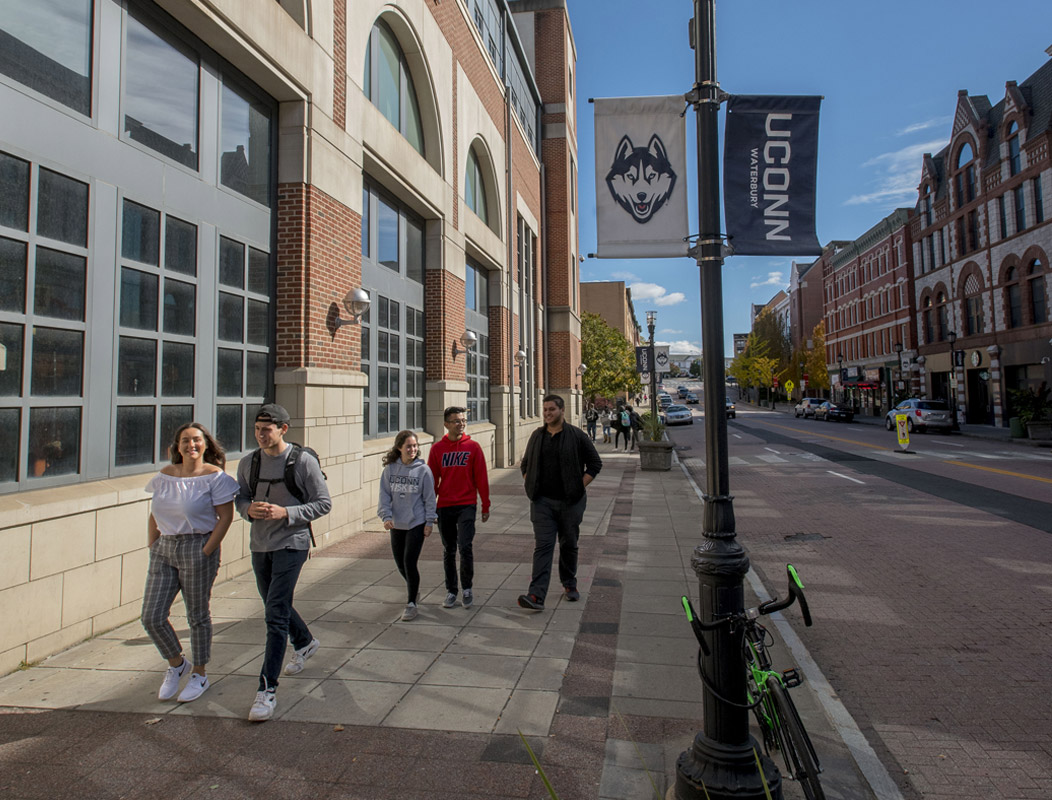 University of Connecticut
University of Connecticut  WORX
WORX Dr. Hoeft is a significant voice in the neuroscience field, and is most known for her work around dyslexia – a learning difference where an individual has challenges decoding how speech sounds relate to letters and words when reading.
She notes that some studies forecast nearly 20% of all young people in the country have some symptoms that fall within the wide characteristics of dyslexia.
“Being at medical school was great, but the most prevalent medical condition is not up to 20%. If I do research in this area, it has a large impact and touches the lives of many.”
In terms of my philosophy for life, I don't have anything really grand, but what I really do care about and what really drives me every day is having an impact.
To Hoeft, impact is not just about accumulating knowledge, but about putting it into action so others can succeed – even if, especially if, that success occurs by connecting with one person at a time.
“Some people think that I might like giving talks to thousands of people because then you can touch so many at a time,” she says. “That's rewarding in a different way. What I really like is, for example, going into the classroom, doing science outreach to 200 kids or 20 kids, and interacting with them. If one says he or she wants to be a neurosurgeon, or a scientist, there's nothing more rewarding than feeling like you touched that person's life and could maybe change their trajectory in a positive way.”
 WORX
WORX She’s even noticing that the concept of impact and influence is rubbing off on her sons, aged 12 and 14. The pandemic allowed the boys to see their mom work up close – toggling between WebEx meetings, Zoom conversations, and never-ending email chains. The boys were not impressed. “They used to say, ‘I don't want to be in academia or a researcher because you're up all the time, you're working all the time.’” That all changed when her youngest visited UConn Waterbury campus post-pandemic and shadowed Hoeft for a day. The boy got to help out and see how he could help others.
At the end of the day, he turned to his mother and remarked, “Now I know why you love your job so much.”
For a person who has been coast to coast, and continent to continent, Dr. Hoeft believes Waterbury is poised to build on its stability and economic momentum.
“Waterbury is a great place with a lot of opportunity right now – whether it's space and you're looking for buildings, whether it's bringing in new kind of manufacturing or industry, whether it's in the healthcare systems and something related to that.”
Hoeft is such a believer in the region that she – with investment support from the flagship University – is expanding the footprint of UConn Waterbury’s campus. On a related note, she is heading back to the White House to accept a USDA NextGen award – which features a $4.5 million grant to expand programs and enhance career opportunities for UConn students in fields like agriculture, human health, and nutrition. On the topic of expansion, Hoeft is buoyed by the vibe and collaborative spirit that she finds quite unique in Waterbury.
“Everyone here wants to work together. Honestly, I haven't been to any other city that is this friendly and where you can get work done."
Hoeft recognizes the massive potential that exists in the Waterbury region to grow from, among other things, the synergy of the healthcare and higher education institutions. It’s a model that has served other cities around the world very well – and with many significant assets already in place here, Hoeft wants to play a major role in the economic development of Waterbury.
“New stores are coming in, people are talking about what to put into different buildings – and with Post University here, the University of Connecticut here, a number of state universities and community colleges nearby, I think there's tremendous opportunity to collaborate and build something new. I just can't wait.”
And with those parting words, Dr. Fumiko Hoeft is off – the sound of her heels fading as she heads to a session about UConn planning, or career pathways, or lab research, or all of the above. Waiting, as you might surmise, is not something associated with Dr. Hoeft.
There’s seventy pages worth of evidence on her curriculum vitae to prove it.
 WORX
WORX 

